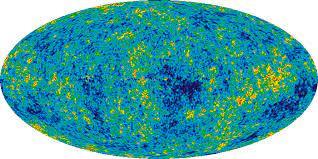The concept of a "center" of the universe is a common misconception, as modern science has shown that the universe is infinite and expanding in all directions. However, it is still possible to explore the history of this idea and its evolution throughout human history.
Ancient civilizations, such as the Greeks and the Chinese, believed in a geocentric model of the universe, where Earth was at the center and everything else revolved around it. This belief was based on observations of the night sky and philosophical reasoning, but it was eventually disproved by Copernicus and Galileo in the 16th and 17th centuries.
With the development of modern astronomy, it became clear that our solar system is not at the center of the universe, but rather located in the outskirts of a galaxy called the Milky Way. However, even the Milky Way is not at the center of the universe, but rather one of billions of galaxies in a vast and expanding universe.

The idea of a "center" of the universe persisted in popular culture and religion, with some religious texts placing Earth or humanity at the center of creation. However, scientific evidence has consistently shown that the universe does not revolve around any specific point or entity, and that the laws of physics and cosmology apply equally to all parts of the universe.
In fact, the concept of a "center" of the universe is inherently flawed, as it assumes that the universe has a specific location or orientation. However, the universe does not exist within any particular physical space, but rather encompasses all space and time.
According to the Big Bang theory, the universe began as a singularity – a point of infinite density and temperature – and has been expanding ever since. This expansion is not happening in any particular direction or towards any specific point, but rather equally in all directions.
In other words, every point in the universe can be considered the "center" of the universe, as the universe does not have a fixed orientation or location. This is known as the cosmological principle, which states that the universe is homogeneous and isotropic – meaning that it looks the same from every direction and at every location.
Therefore, the question of where the center of the universe is located is fundamentally flawed, as it assumes that the universe has a specific location or orientation. Instead, the universe encompasses all of space and time, and every point in the universe can be considered the "center" of the universe.